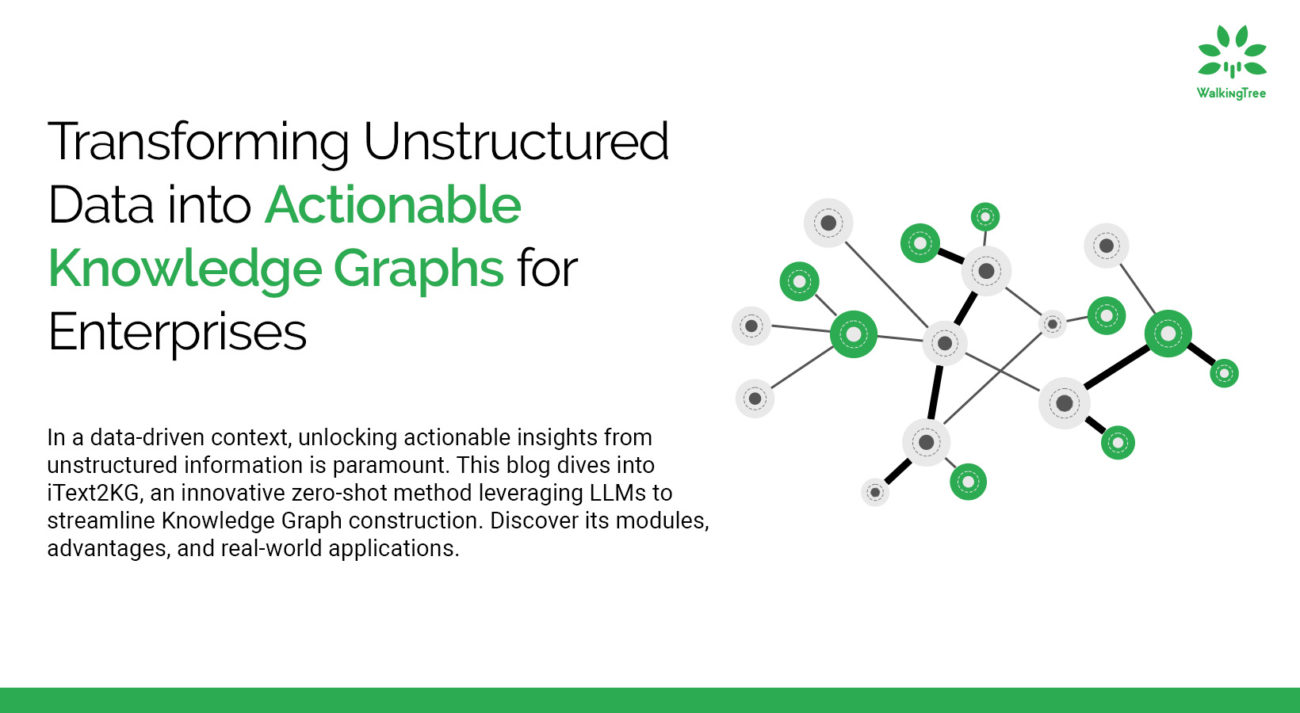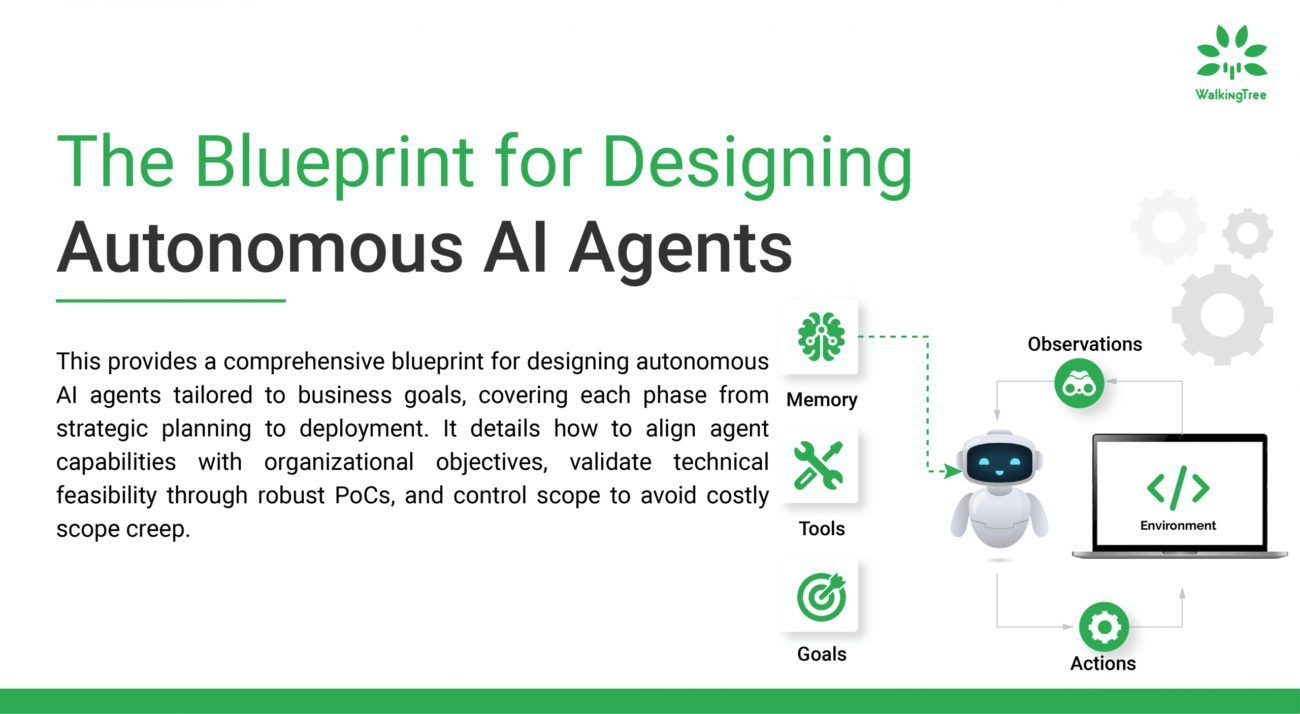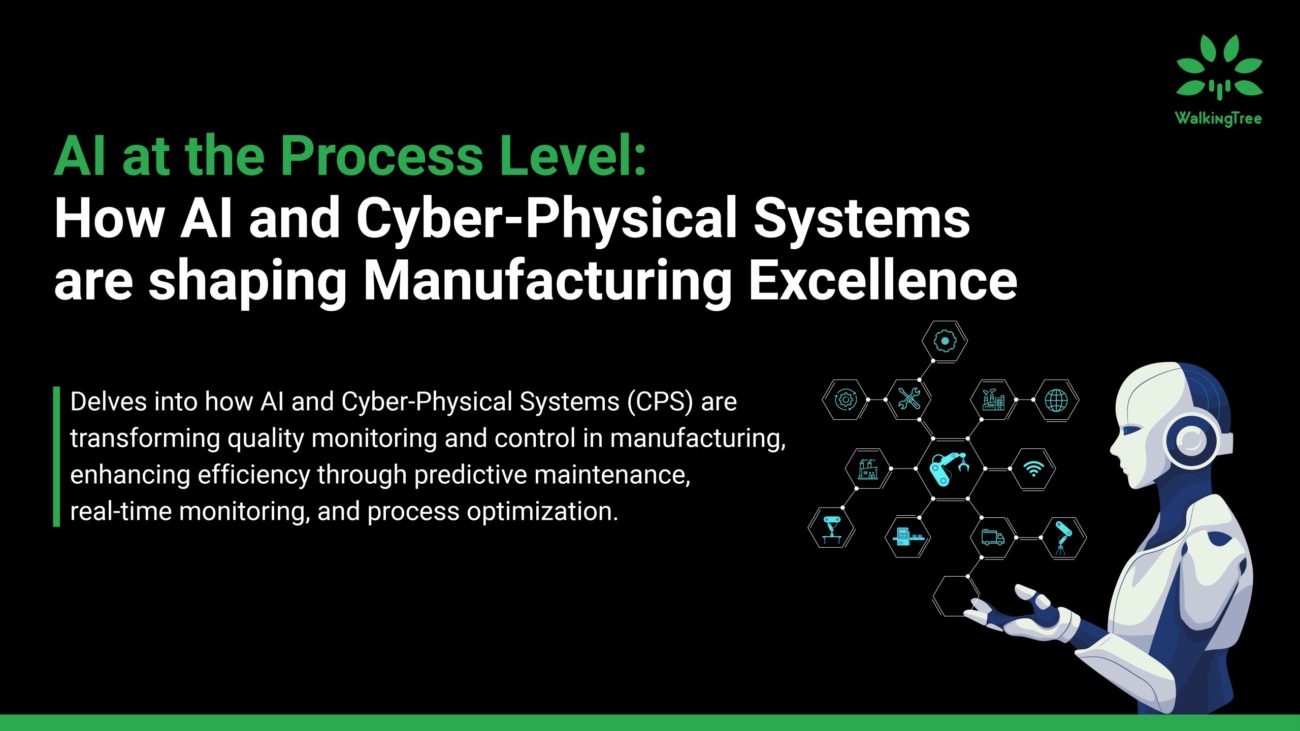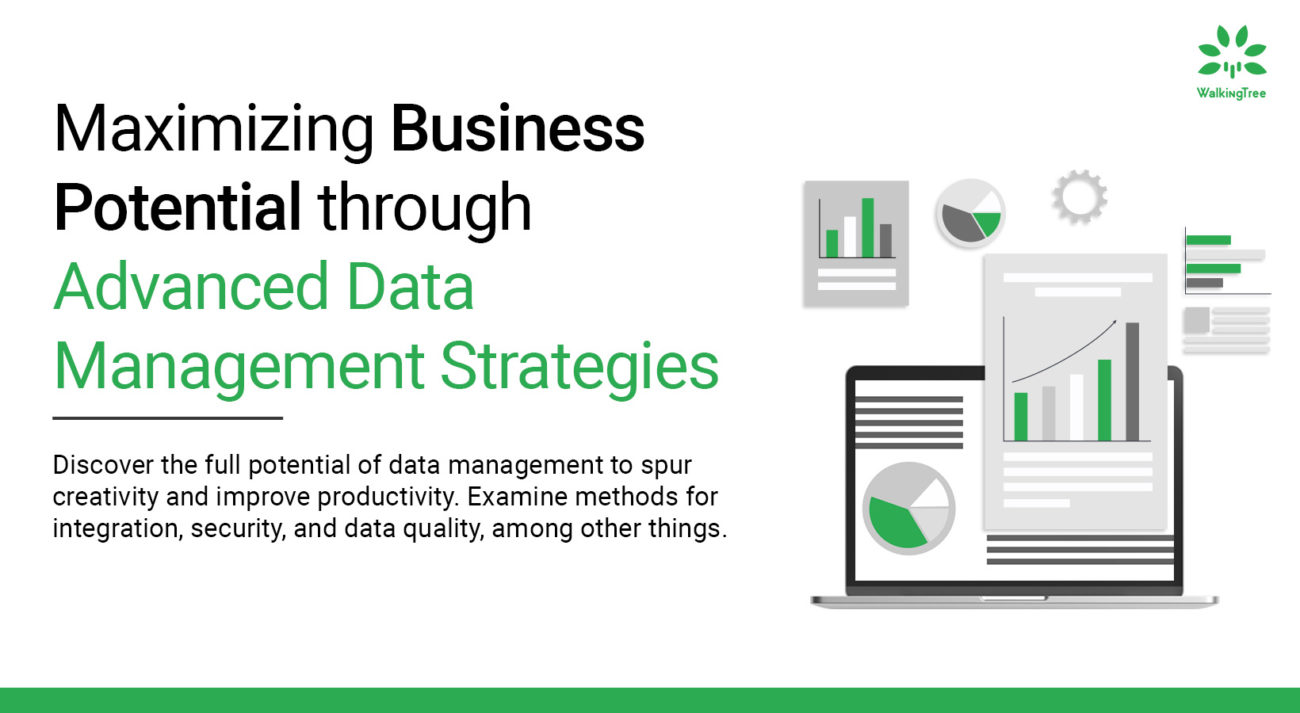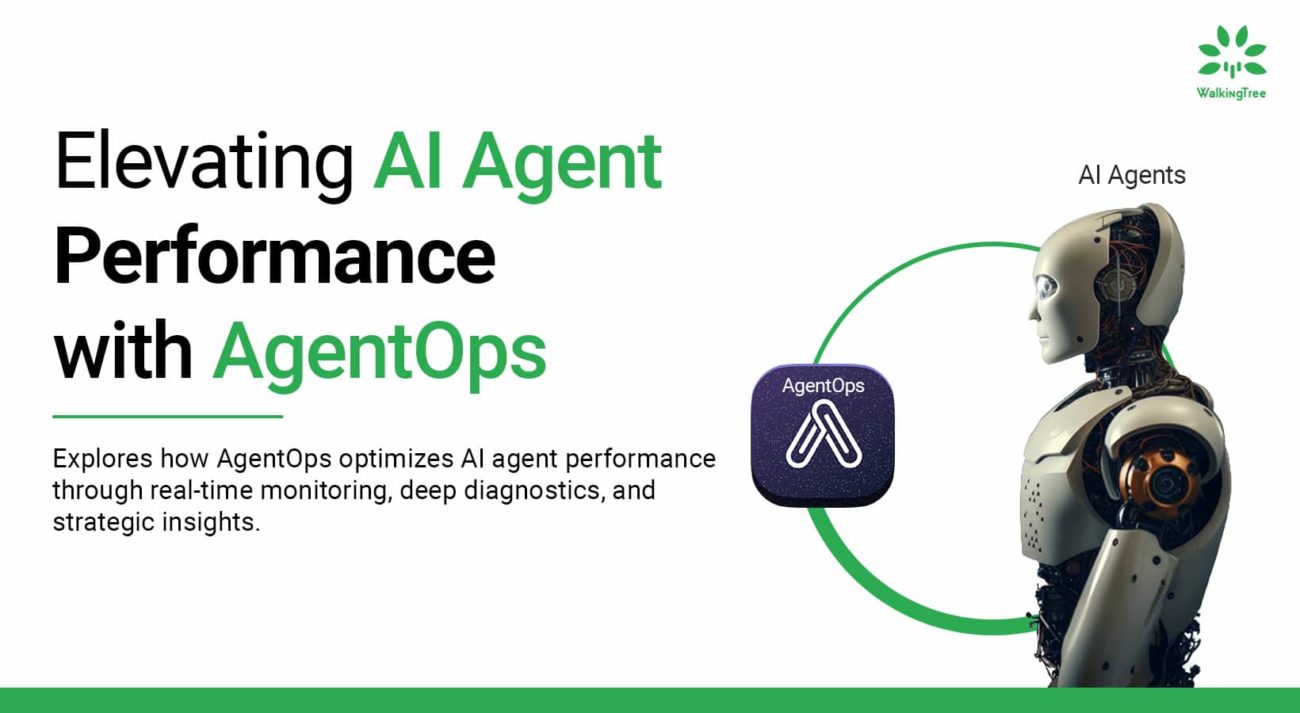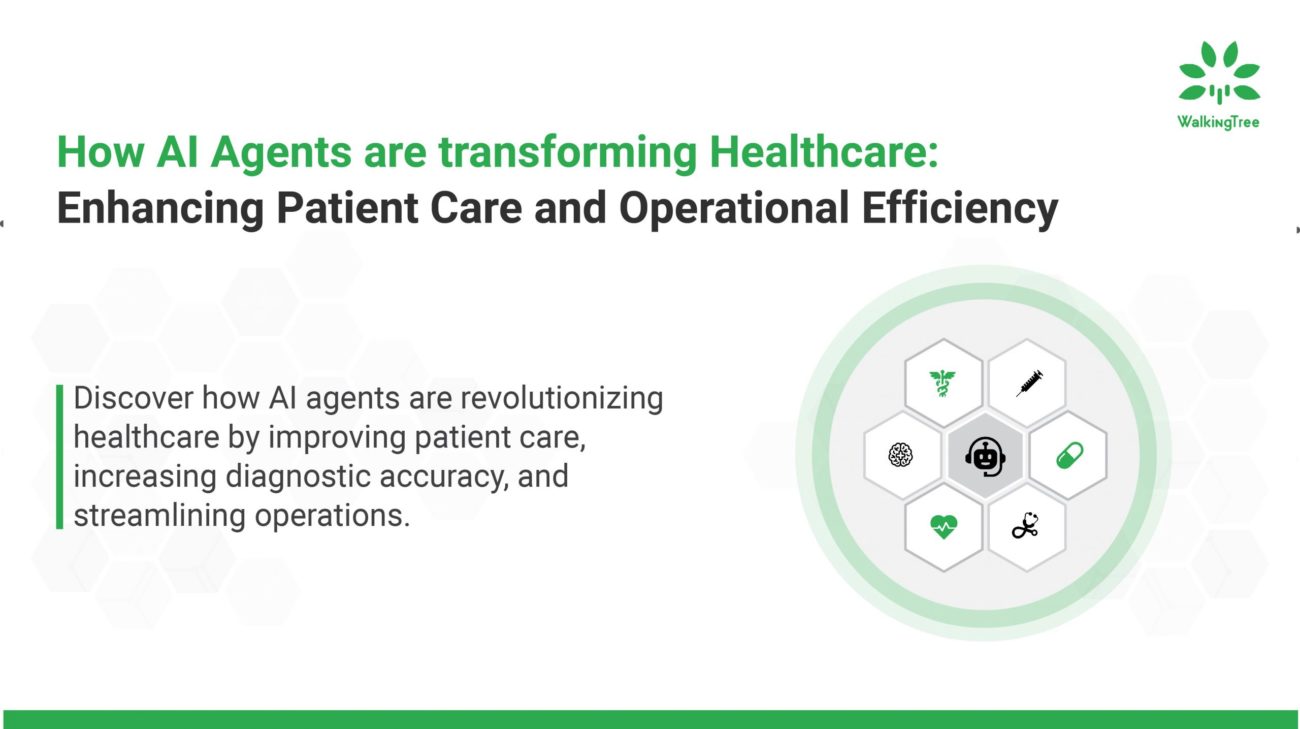Exploring the role of Machine Learning to transform Electronic Health Records for Healthcare research
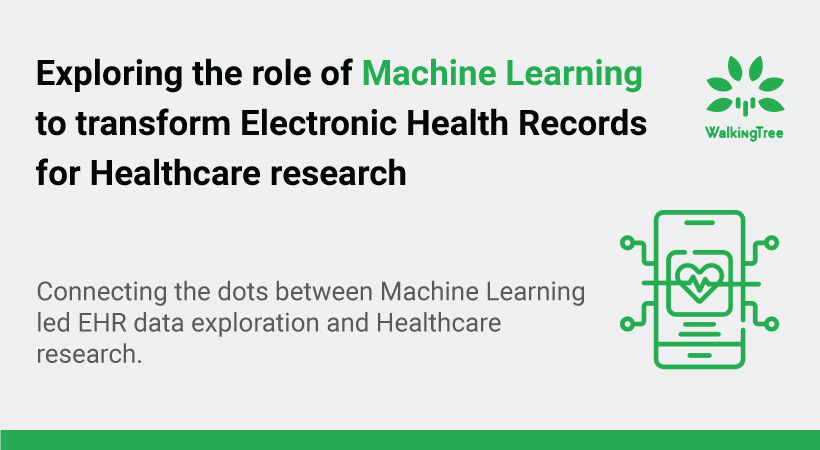
 Electronic Health Records (EHRs) have emerged as a treasure trove of valuable information, holding the potential to revolutionize healthcare research and improve patient outcomes. In this era of data-driven decision-making, EHRs have become a goldmine of patient information that can catalyze groundbreaking research and, most importantly, lead to better healthcare outcomes.
Electronic Health Records (EHRs) have emerged as a treasure trove of valuable information, holding the potential to revolutionize healthcare research and improve patient outcomes. In this era of data-driven decision-making, EHRs have become a goldmine of patient information that can catalyze groundbreaking research and, most importantly, lead to better healthcare outcomes.
I shed some light here on how machine learning, powered by the latest advancements in artificial intelligence, is poised to fundamentally reshape the landscape of healthcare research.
|Understanding Electronic Health Records (EHR)
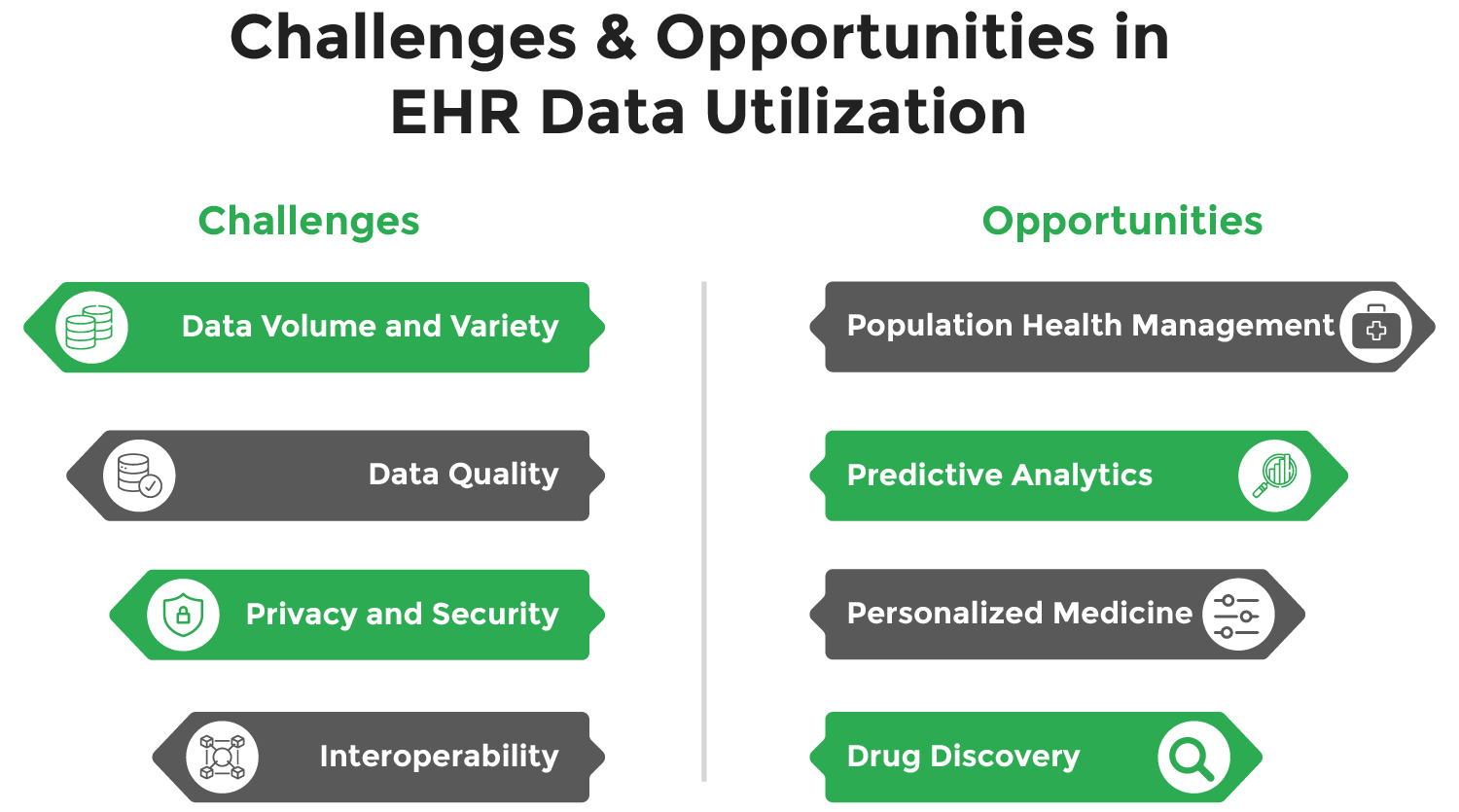
Electronic Health Records, often referred to as EHRs, are digital versions of patients’ paper medical charts. These digital records contain a wealth of information, including patient demographics, medical history, diagnoses, treatment plans, laboratory results, and more. The transition from paper-based records to EHRs has not only improved the efficiency of healthcare operations but has also created an unprecedented opportunity for data-driven healthcare research.
Before we dive into the role of machine learning in leveraging EHR data, let’s first understand the challenges and opportunities that come with it.
|Challenges in EHR Data Utilization
- Data Volume and Variety: EHRs are incredibly rich in data, but this abundance can also be overwhelming. They encompass diverse data types, such as structured data (e.g., diagnosis codes) and unstructured data (e.g., physician notes). Handling this variety and volume of data is a substantial challenge.
- Data Quality: Data quality issues, including missing, erroneous, or inconsistent data, are common in EHRs. Poor data quality can lead to misleading research results and hinder the effectiveness of machine learning models.
- Privacy and Security: EHRs contain sensitive patient information, making privacy and security paramount concerns. Compliance with regulations like HIPAA is essential but can introduce complexity in data access and sharing.
- Interoperability: EHR systems from different providers often have limited interoperability, making it difficult to aggregate data from diverse sources for comprehensive research.
|Opportunities in EHR Data Utilization
- Predictive Analytics: EHR data can be used to develop predictive models that forecast disease outbreaks, patient readmissions, and treatment responses. Machine learning can help identify patterns and risk factors that human experts might overlook.
- Personalized Medicine: By analyzing EHRs, machine learning can assist in tailoring treatment plans to individual patients, optimizing medication dosages, and minimizing adverse reactions.
- Population Health Management: Machine learning can analyze EHR data to identify trends in patient populations, enabling healthcare providers to develop targeted interventions and preventative strategies.
- Drug Discovery: EHR data can aid in drug discovery and development by identifying potential candidates for clinical trials and assessing real-world drug effectiveness.
|Machine Learning in EHR Data Utilization
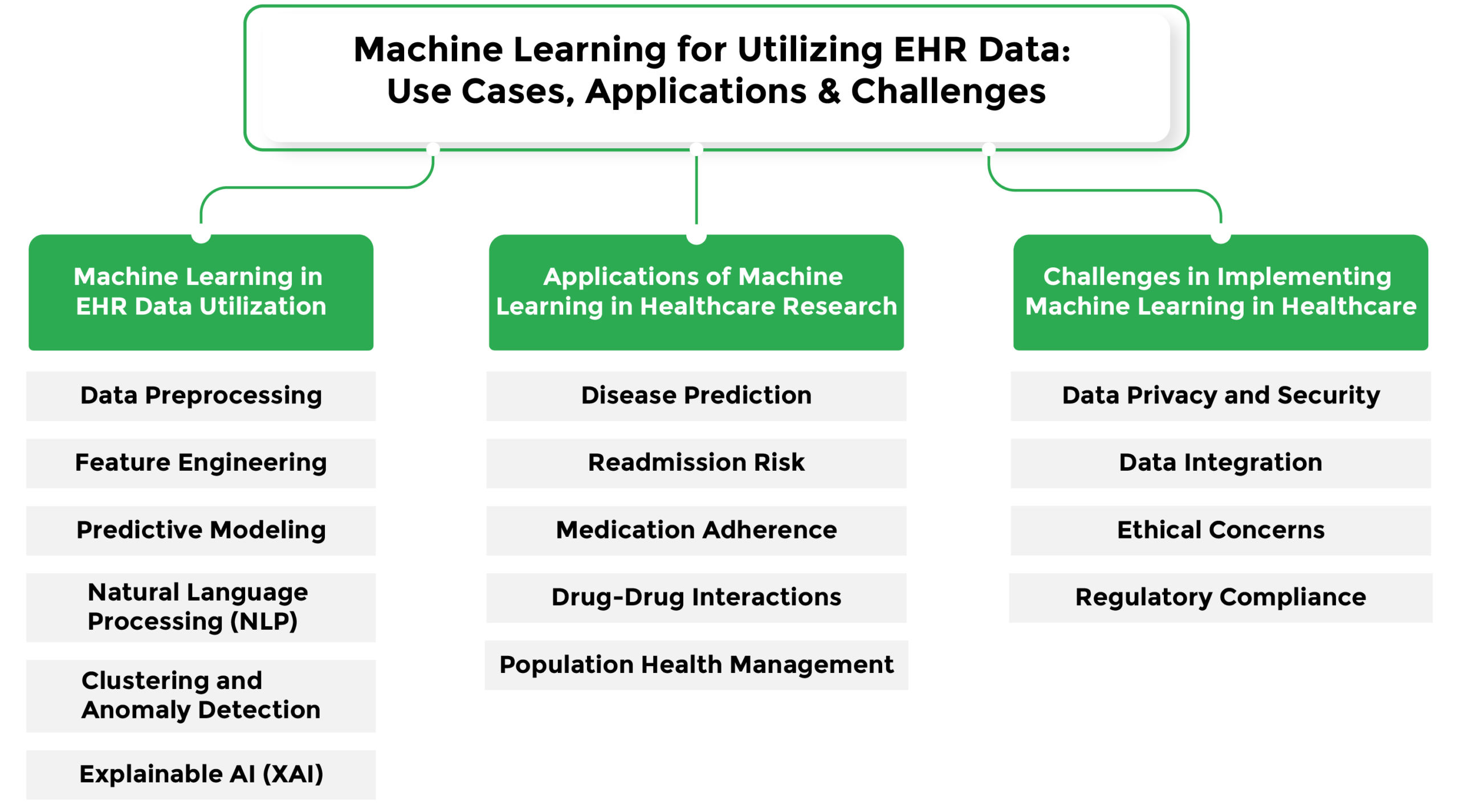
Now that we’ve explored the potential locked within EHRs, let’s delve into how machine learning can unlock this treasure chest of healthcare insights.
- Data Preprocessing: Before applying machine learning algorithms, EHR data must undergo preprocessing. This includes data cleaning, normalization, and handling missing values. Machine learning models are sensitive to data quality, so this step is crucial for accurate results.
- Feature Engineering: Feature engineering involves selecting and creating relevant features from the raw EHR data. Machine learning algorithms depend on informative features, and domain expertise is critical here to extract meaningful variables.
- Predictive Modeling: Machine learning models can predict a wide range of healthcare outcomes, from disease onset to patient prognosis. For example, recurrent neural networks (RNNs) can be used to model the time series data found in EHRs, allowing for the prediction of disease progression.
- Natural Language Processing (NLP): Unstructured data, such as clinical notes, can be analyzed using NLP techniques. NLP enables sentiment analysis, extraction of medical entities, and the identification of key information within free-text notes.
- Clustering and Anomaly Detection: Machine learning can be employed to cluster patients with similar medical profiles or to detect anomalous behavior. This can be invaluable for identifying patient subgroups and outliers.
- Explainable AI (XAI): Healthcare decisions can have life-altering consequences, so it’s imperative to make machine learning models interpretable. XAI techniques provide transparency and allow healthcare professionals to trust and understand model predictions.
|Applications of Machine Learning in Healthcare Research
- Disease Prediction: Machine learning models can predict the risk of diseases like diabetes, heart disease, and cancer based on EHR data. These predictions enable early interventions and personalized preventive care.
- Readmission Risk: By analyzing patient records, machine learning can estimate the likelihood of a patient being readmitted to the hospital. This information helps healthcare providers allocate resources more effectively and improve post-discharge care.
- Medication Adherence: Machine learning models can identify patients at risk of non-adherence to medication regimens. Healthcare providers can then intervene with tailored support to improve adherence rates.
- Drug-Drug Interactions: EHR data can be analyzed to detect potential interactions between medications, helping healthcare providers avoid adverse reactions and improve patient safety.
- Population Health Management: Machine learning can assist in identifying high-risk patient populations, optimizing resource allocation, and designing targeted public health interventions.
|Challenges in Implementing Machine Learning in Healthcare
- Data Privacy and Security: Protecting patient privacy is paramount. Data anonymization, encryption, and strict access controls are essential to ensure that EHR data remains confidential.
- Data Integration: Integrating EHR data from various sources and formats can be challenging. Standardization and interoperability efforts are ongoing but require substantial investment.
- Ethical Concerns: Machine learning models can inadvertently perpetuate biases present in EHR data. Ensuring fairness and equity in healthcare AI is an ongoing concern.
- Regulatory Compliance: Complying with healthcare regulations like HIPAA adds complexity to EHR data utilization. Ensuring that machine learning practices adhere to legal frameworks is crucial.
In the end, mind the potholes on your way to the summit of intelligent healthcare…
Data quality, privacy, security, and ethical considerations are critical aspects that must be addressed to harness the full potential of EHR data. Collaborative efforts from healthcare providers, data scientists, and policymakers are essential to navigate these challenges and maximize the benefits of machine learning in healthcare research.
As technology leaders and healthcare professionals join forces, we can look forward to a future where data-driven insights derived from EHRs lead to more precise diagnoses, better treatment outcomes, and ultimately, healthier lives for all.
The convergence of machine learning and EHR data is not just a technological advancement; it’s a leap forward in our quest for better healthcare.

